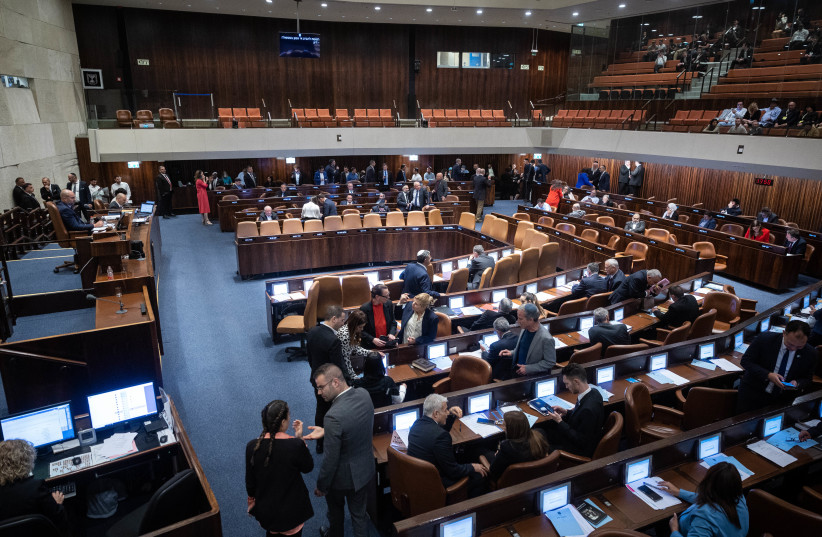Leading judicial reform advocate Kohelet Forum said in a late Tuesday night statement that there was room for compromise on many reform provisions, including waiving the override clause, but that core judge selection committee issues had to be addressed.
Compromise could be reached on judicial review of normal legislation, the reasonableness clause and the status of legal advisers, and The override clause could be dropped if other solutions could be provided for the problems it was proposed to address.
Some gaps can be bridged
“We discovered that in relation to many issues, the gaps can be bridged,” said Kohelet, who’s policy advocacy has been the basis for much of the current movement for judicial reform.
Critics of the reform have expressed concern about a new judicial review system in which the High Court of Justice would be restricted from interfering in Israel's quasi-constitutional Basic Laws.
They have noted that because there is no special method to legislate Basic Laws, the Knesset's constitutive authority could be abused to pass all laws it wanted, protected from judicial review as Basic Laws.
Kohelet said that this concern could be alleviated by establishing a special method for the introduction of Basic Laws. This could include a 61 Knesset member voting majority for each reading or a fourth reading in the subsequent Knesset. The last idea has been raised in Constitution, Law and Justice Committee session, and notably in the Friedmann negotiation outline.
The NGO said it respected opposing opinions and legitimate protest, but denounced "irresponsible behavior" that threatened security force cohesion. The 10-week protests have seen a societal taboo broken with IDF reservists refusing to perform duties over the reform. The protests have also seen Kohelet offices targeted by aggressive anti-reform action.
Kohelet said that broad consensus was important, and since Justice Minister Yariv Levin had announced the reform plan at the beginning of the year, had engaged with experts with opposing opinions in order to find such compromises.
"We did this in the belief that such reform should be passed with the widest possible support," said Kohelet. "We appreciate additional attempts made to reach a compromise, and wish to express gratitude for the efforts of Israel’s President to bring the political parties to an agreement."
There were problems that Kohelet explained that the reform had to address.
"We believe that comprehensive reform is necessary in light of the unchecked power that the judiciary has accumulated vis-à-vis the representative branches," said Kohelet. "The current state of imbalance among the branches has led to systemic dysfunction and to a sense of alienation among those segments of the population who feel the courts do not represent them."
"We believe that comprehensive reform is necessary in light of the unchecked power that the judiciary has accumulated vis-à-vis the representative branches."
Kohelet Forum
Consequently, Kohelet feels that any reform plan must address the judge selection committee in a matter that would strengthen the government's representation. Both the coalition and opposition should have greater control of the committee, though the former should have an advantage, according to Kohelet. Kohelet introduced a new idea, that the coalition be partially represented by professional appointments. It also said that the removal of High Court justice vetos needed to be canceled.
Kohelet hoped that President Isaac Herzog would adopt these considerations in his endeavors to reach a compromise. Herzog has been attempting to have opposition and coalition leaders negotiate on reform for weeks, but has been stuck on the precondition of cessation of legislation. Herzog is expected to present a new outline for negotiation in the coming days.
If reform was introduced, Kohelet said it hoped that it would lead to the adoption of a "consensual constitution" for Israel and a comprehensive bill of rights. This aspiration comes after weeks of steadily building calls for renewal of Israel's constitutional process, climaxing with Opposition leader Yair Lapid and the Movement for Quality Government in Israel proposing formal written constitutions on Friday and Thursday.
Kohelet's statement comes almost a week after Kohelet senior fellow Dr. Michael Sarel issued a personal opinion in which he warned that the current reform legislation would remove separations of powers and checks and balances. Such a system could ultimately degrade Israel's democratic institutions.

